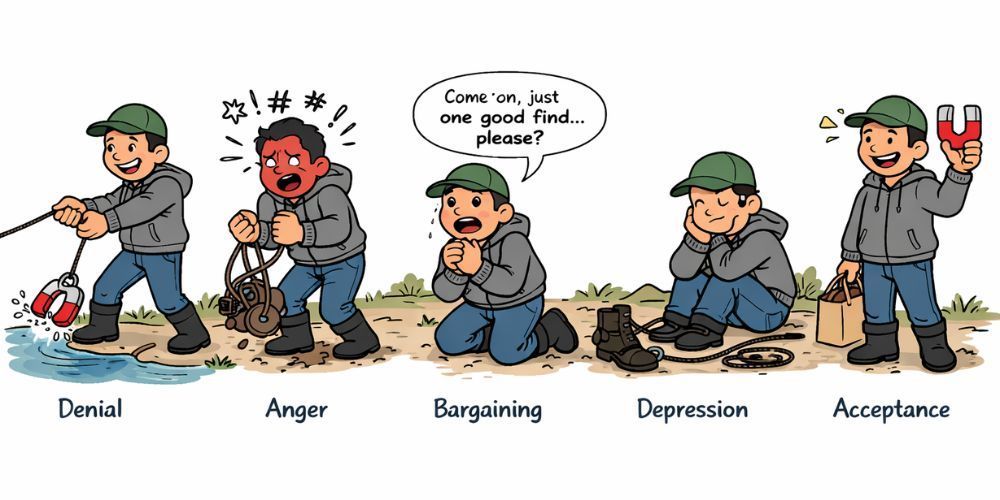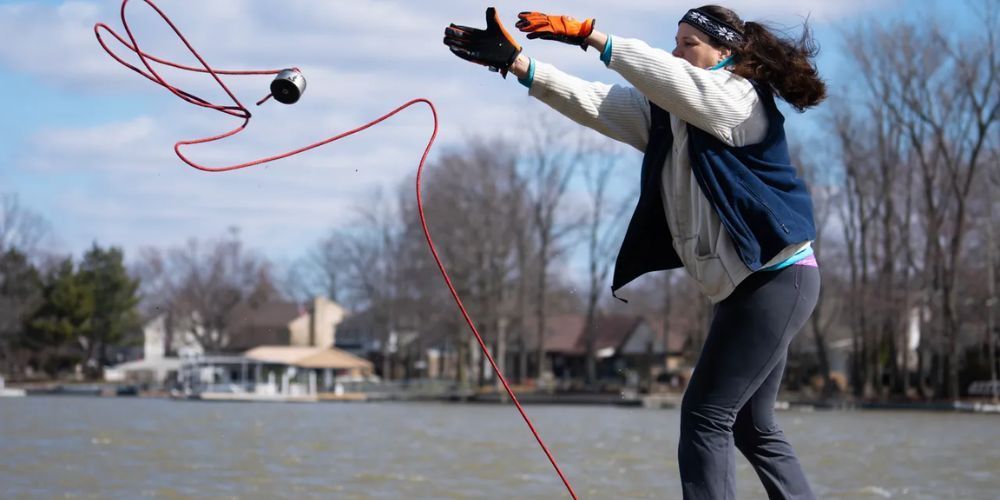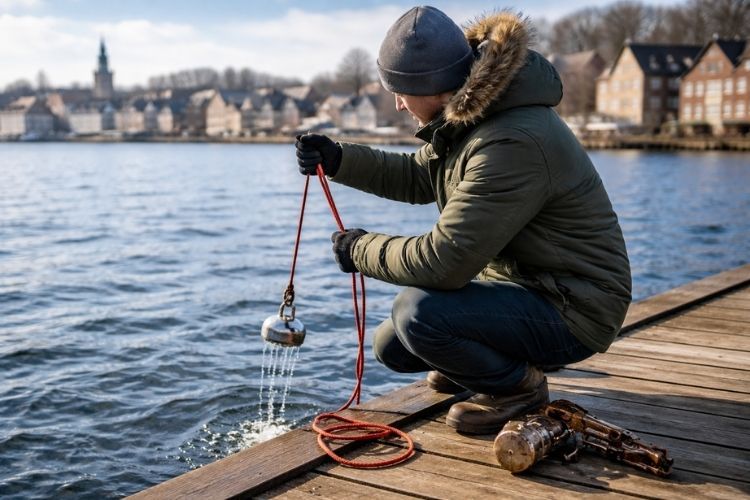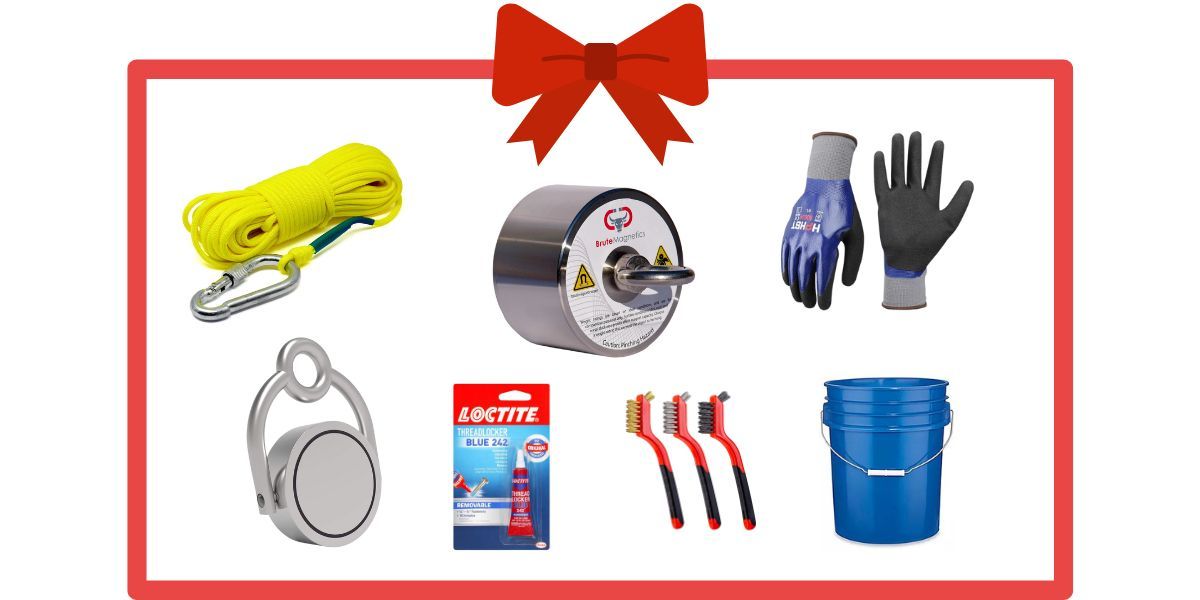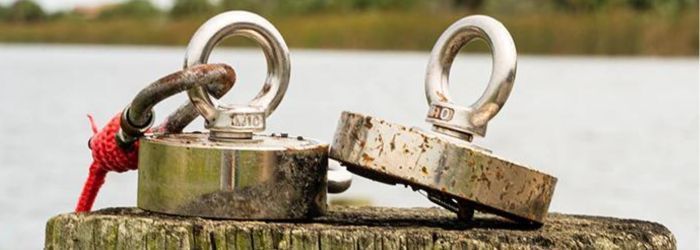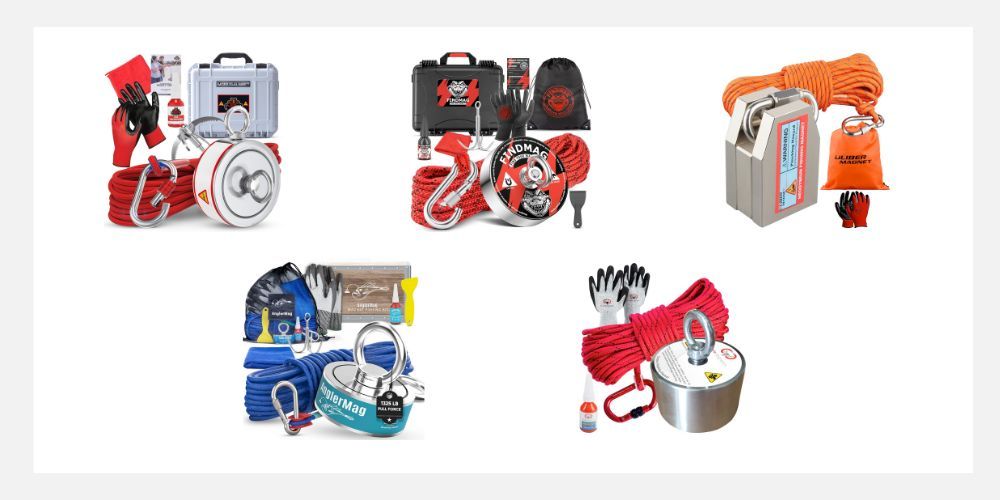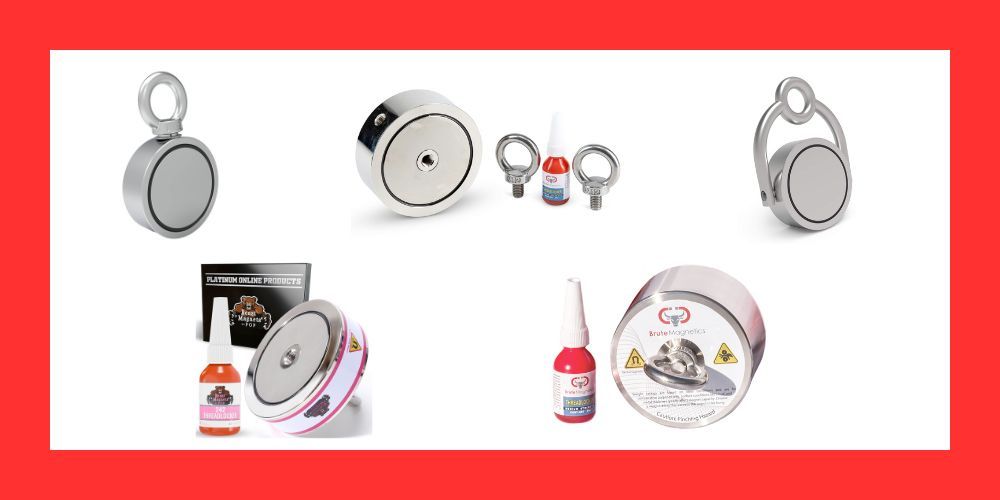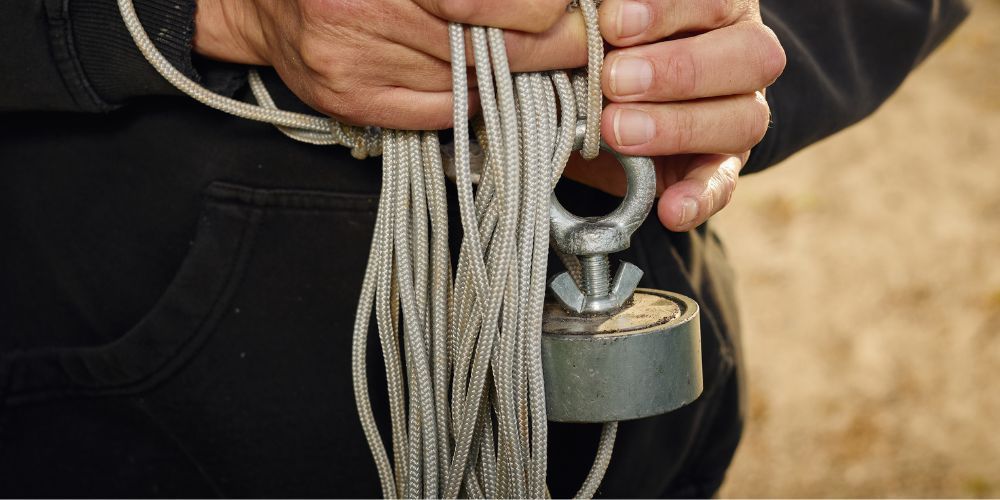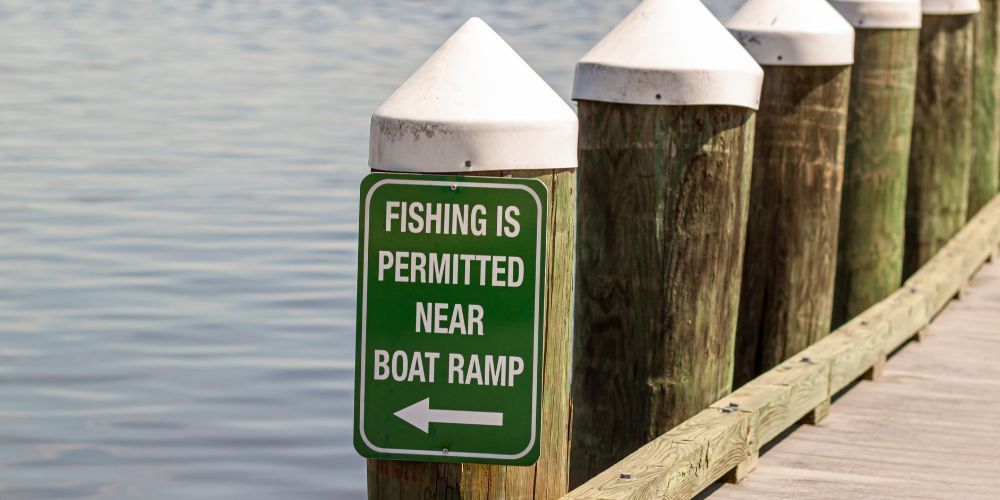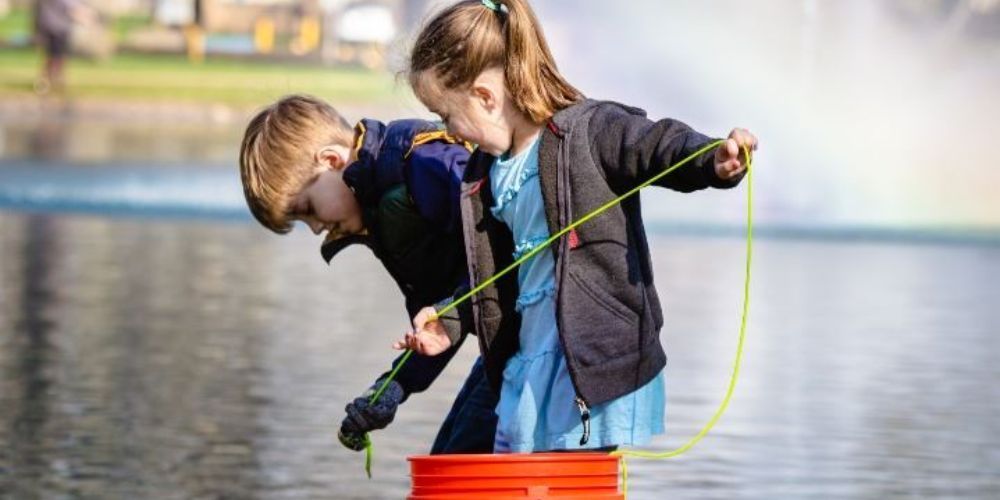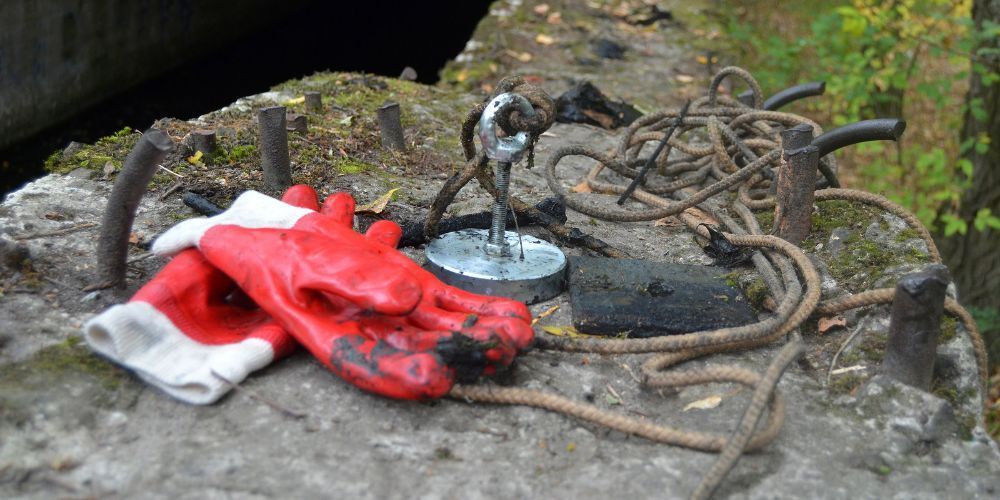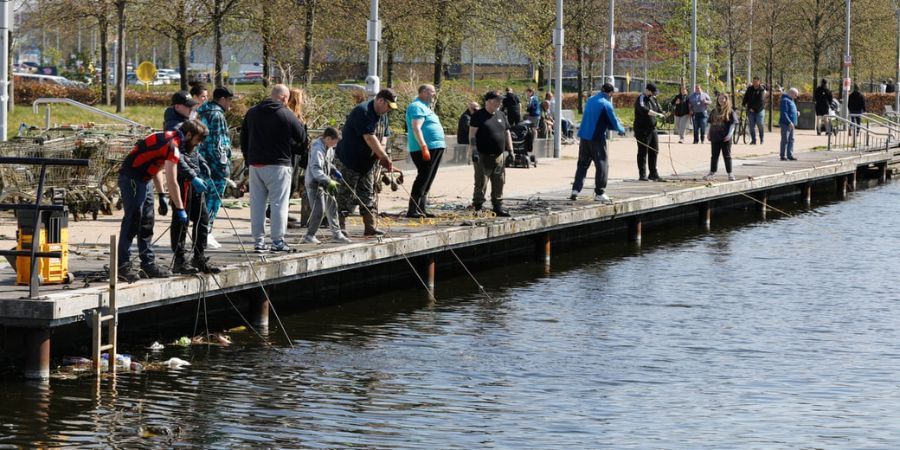Magnet Fishing from a Kayak or Canoe: Tips for Water-Based Retrieval
Taking your magnet fishing adventure onto the water opens up a whole new world of possibilities. While most of us start from shorelines and bridges, fishing from a kayak or canoe lets you reach those deep, untouched spots where the really good stuff might be hiding.
I've spent countless hours magnet fishing from my kayak, and let me tell you – it's a game-changer. But it also comes with its own set of challenges that you need to be ready for.
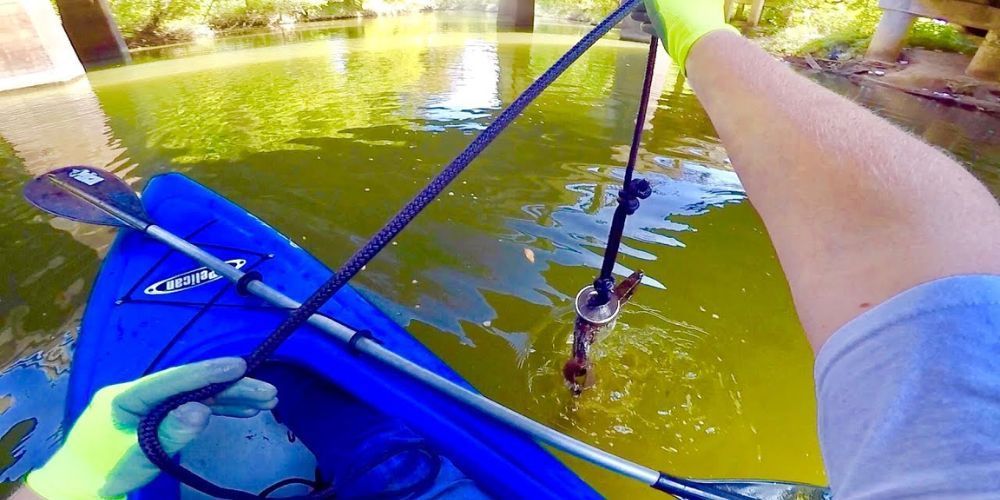
Why Magnet Fish from a Kayak or Canoe?
When you're stuck on shore, you're limited to whatever's within casting distance. But hop in a kayak, and suddenly you can access:
- Deep water channels where heavy items naturally sink
- Areas under docks and piers that are impossible to reach from land
- Remote spots with less competition from other magnet fishers
- The middle of lakes and rivers where old bridges used to cross
Plus, there's something incredibly peaceful about drifting along while your magnet does its work below.
Essential Safety Measures for Water-Based Magnet Fishing
Before we talk gear, let's talk safety. The water adds a whole new dimension of risk to magnet fishing that you can't ignore.
Personal Flotation Device (PFD) is Non-Negotiable
I don't care how good a swimmer you are – wear a life jacket. When you're dealing with potentially heavy finds and the possibility of your kayak tipping, a PFD could save your life. Look for one that won't restrict your arm movement too much since you'll be casting and retrieving.
Know Your Limits
Start in calm, shallow water before venturing into deeper or faster-moving areas. I learned this the hard way when I nearly got swept downstream trying to retrieve a car bumper in a swift current.
Weather Awareness
Water conditions can change quickly. If there's any chance of storms, high winds, or rough water, save the trip for another day. Your safety is worth more than any find.
Tell Someone Your Plans
Always let someone know where you're going and when you expect to return. Share your planned route and have them contact authorities if you don't check in.
Kayak and Canoe Setup for Magnet Fishing
Your watercraft setup can make or break your magnet fishing experience. Here's what I've learned works best:
Stability First
Choose a wide, stable kayak or canoe over a fast, narrow one. You'll be leaning over the side frequently, and stability trumps speed every time. Sit-on-top kayaks work particularly well because they're self-draining and easier to get back on if you do tip.
Anchor System
You'll need a way to stay in position while you work an area. A simple anchor and rope work, but make sure you can release it quickly if needed. I use a quick-release anchor system that lets me drop the anchor fast if I hook something really heavy.
Storage Solutions
Waterproof storage is crucial for your phone, keys, and any finds. Dry bags are your friend here. I keep separate compartments for:
- Clean finds (coins, tools, etc.)
- Rusty or dirty items
- Trash and debris
- Personal items
Gear Modifications for Water-Based Fishing
Your standard magnet fishing setup needs some tweaks when you take it on the water.
Magnet Selection
For kayak fishing, I prefer magnets in the 400-800 lb range. They're strong enough to grab good finds but not so powerful that they'll pull you out of your kayak. A 500lb double-sided magnet is perfect for most water-based adventures.
Rope Considerations
Use a floating rope if possible – it's easier to manage and won't sink if you drop it. I also recommend:
- At least 100 feet of rope for deeper water
- Bright colors for visibility
- A comfortable grip or handle at the end
Gloves Are Critical
Waterproof magnet fishing gloves are essential. Wet hands and rough rope don't mix well, and you'll need the grip strength for long retrieval sessions.
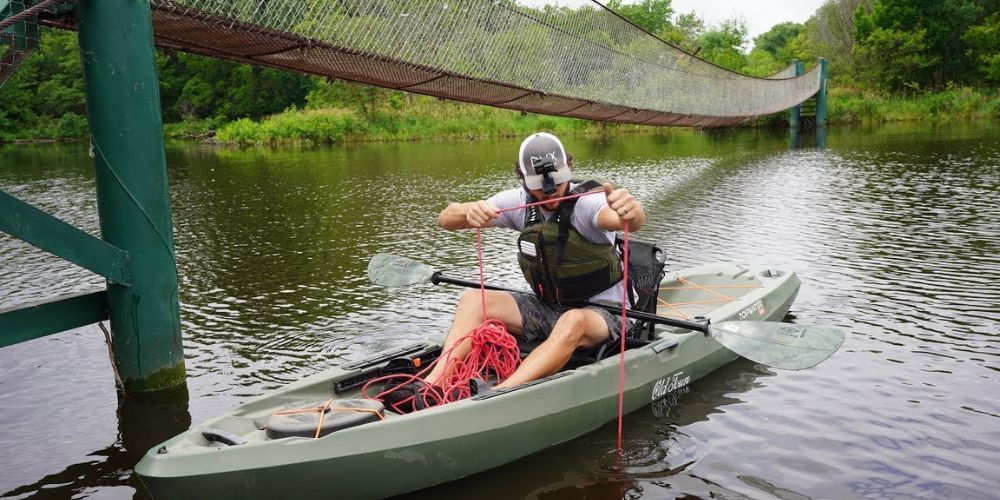
Maneuvering and Positioning Techniques
The key to successful kayak magnet fishing is learning to position yourself effectively.
The Drift Method
Let the current carry you slowly while dragging your magnet behind. This covers a lot of ground with minimal effort and often produces surprising finds.
Anchor and Grid
For thorough coverage of a specific area, anchor up and work in a systematic grid pattern. Move your anchor every 15-20 casts to ensure complete coverage.
Current Reading
Learn to read the water. Look for:
- Eddies where heavy items might collect
- Drop-offs where things naturally roll
- Areas downstream from bridges or docks
Retrieval Strategies from a Kayak
Pulling up finds from a unstable platform requires technique.
The Side Pull
Always pull from the side of your kayak, never over the bow or stern. This keeps you balanced and prevents the kayak from diving forward or backward.
Know When to Let Go
If you hook something that feels like it could tip your kayak, let it go. No find is worth a swim in potentially dangerous water. Remember, you can always mark the GPS coordinates and come back with help.
Heavy Find Protocol
For really heavy items:
- Assess if it's safe to retrieve
- Consider getting closer to shore first
- Use a slow, steady pull rather than jerking
- Be ready to release immediately if the kayak starts to tip
Best Locations for Kayak Magnet Fishing
Some spots are perfect for water-based magnet fishing:
Old Bridge Locations
Research where old bridges used to cross. These areas often have concrete debris and lost items from decades of use.
Marina Areas
Lots of metal gets dropped around boat launches and marinas. Just make sure you have permission and avoid active areas.
River Bends
The outside of river bends is where heavy items naturally collect due to current patterns.
Lake Coves
Protected coves often accumulate items that have sunk over the years and are perfect for beginners to practice.
Common Mistakes to Avoid
Learn from my mistakes:
Don't Overload Your Kayak
It's tempting to keep every find, but an overloaded kayak is dangerous. Bring trash bags and leave the junk for proper disposal later.
Don't Fish Alone
While I love the solitude, having a buddy in another kayak is much safer, especially when starting out.
Don't Ignore Local Regulations
Some waterways have restrictions on magnet fishing or require permits for watercraft. Check local laws before heading out.
Essential Gear Checklist
Here's what I never leave shore without:
Safety Equipment:
Magnet Fishing Gear:
- Beginner's magnet fishing kit (400-800 lbs)
- 100+ feet of floating rope
- Waterproof gloves
- Dry storage bags
Kayak Equipment:
- Paddle (plus spare)
- Anchor system
- Bilge pump or bailer
- Dry bags for storage
Making the Most of Your Water Adventure
Kayak magnet fishing isn't just about the finds – it's about the experience. Take time to enjoy being on the water, watch for wildlife, and appreciate access to areas most people never see.
Keep a log of your trips, noting GPS coordinates of good spots and what you found. This builds your own personal map of productive areas for future adventures.
Remember to follow proper magnet fishing safety guidelines and always dispose of finds responsibly.
Final Thoughts
Magnet fishing from a kayak takes this hobby to the next level. Yes, it requires more preparation and carries additional risks, but the reward of accessing pristine fishing spots makes it all worthwhile.
Start small, prioritize safety, and gradually work up to more challenging waters. Before you know it, you'll be pulling up finds that shore-bound magnet fishers only dream about.
The combination of paddling and magnet fishing creates an adventure that's hard to beat. Just remember – the journey is just as important as what you pull up from the depths.
What size magnet is best for kayak magnet fishing?
A 400-800 lb magnet is ideal for kayak fishing. It's strong enough for good finds but won't overpower your stability. Anything stronger risks pulling you out of your kayak when you hook something heavy.
Title or QuestionIs it legal to magnet fish from a kayak in all waters?
Laws vary by location. Some areas require watercraft permits, while others may restrict magnet fishing entirely. Always check local regulations for both kayaking and magnet fishing before heading out.
How do I keep my finds dry while kayak magnet fishing?
Use waterproof dry bags to separate clean finds from rusty items. I recommend having multiple bags – one for valuables, one for interesting finds, and one for trash. This keeps everything organized and prevents water damage to important discoveries.
Author: Will Flaiz


